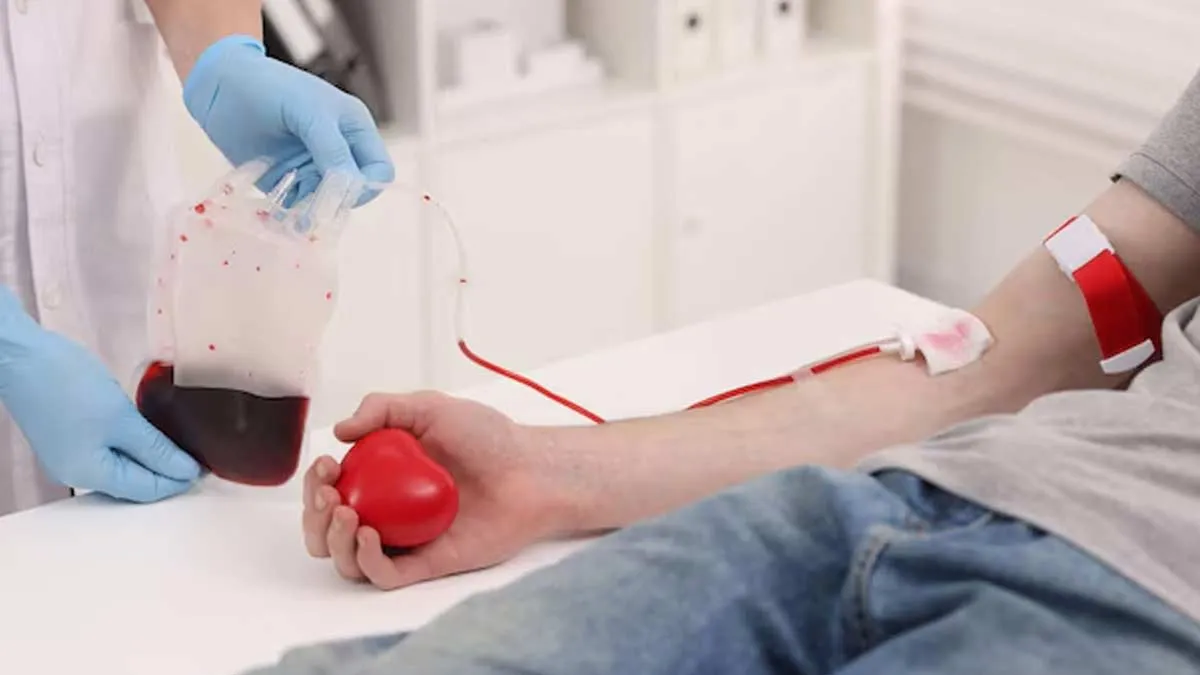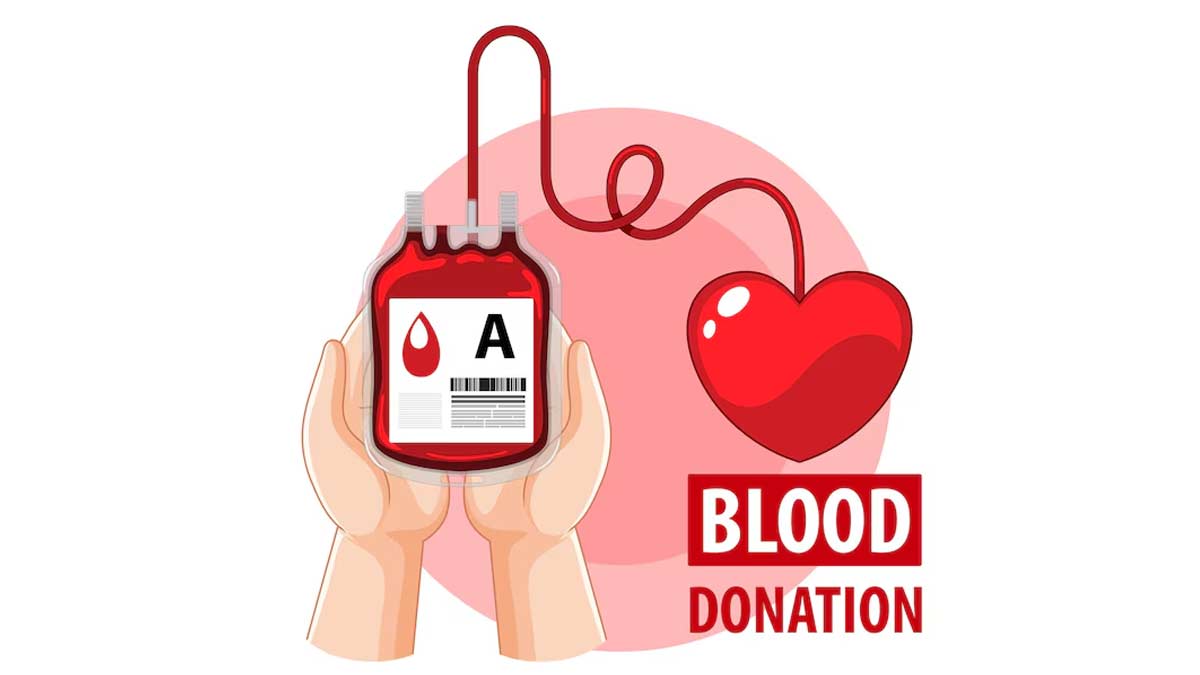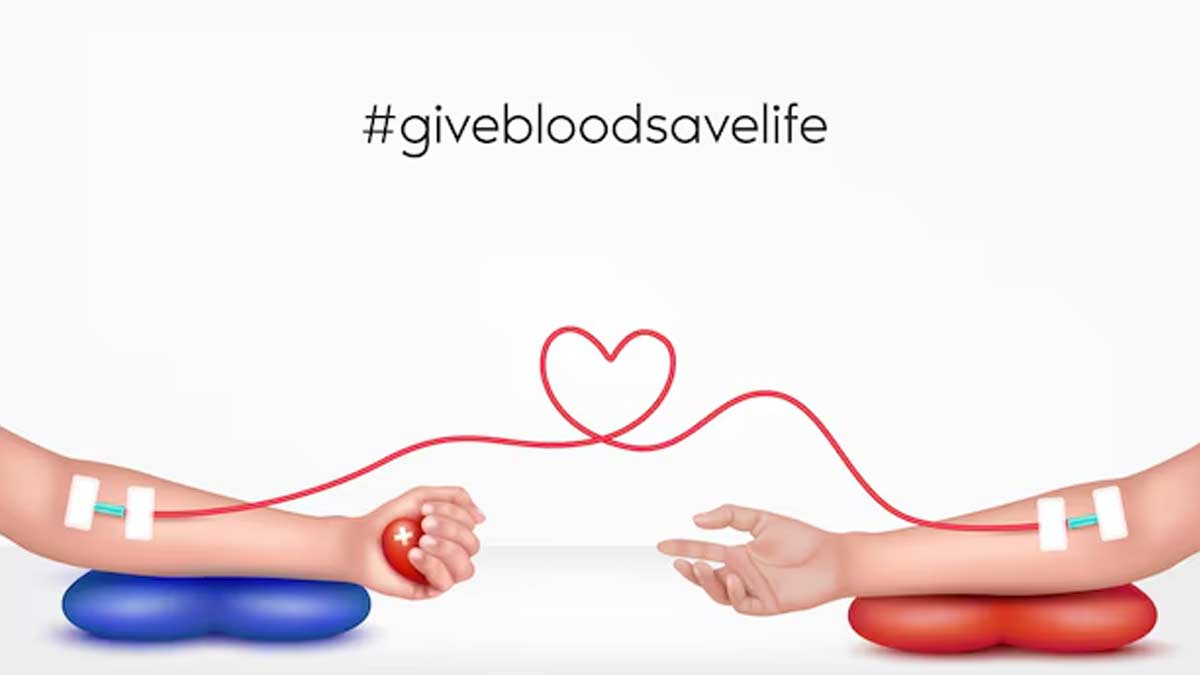
Blood donation is a selfless act that can save lives and contribute to the well-being of society. Despite being a simple and safe procedure, many people hesitate to donate due to misconceptions and myths.
Table of Content:-
We spoke to Dr Umakant Mokalikar, Assistant Professor (IH&BT) and Blood Centre Incharge at Dr DY Patil Medical College, Hospital and Research Centre, Pimpri, Pune.
He emphasises the crucial role of blood donors, stating, "A blood donor plays a vital role in the healthcare of patients in our community. Most people are eligible to donate blood, but only a few actually do. Donating blood is a humanitarian act that can save the lives of thousands of patients who need blood."
Benefits of Blood Donation

Blood donation is not just beneficial for recipients but also for donors. Some of the key advantages include:
Saving Lives: Blood donation has no substitute, and a single donation can save up to three lives. "Your one blood donation can save up to three lives as your donated whole blood is separated into three different components—Packed Red Blood Cells, Platelet Concentrates, and Fresh Frozen Plasma—used for three different patients," explains Dr Mokalikar.
Improved Well-being: Donating blood gives donors a sense of fulfilment, as they contribute to saving lives. This act of kindness triggers the release of endorphins, also known as “feel-good” hormones, positively impacting mental health.
Maintains Iron Levels: Regular blood donation helps maintain balanced iron levels in the body, reducing the risk of conditions such as hemochromatosis, where excessive iron accumulation can damage organs.
Reduced Risk of Cardiovascular Diseases: Studies indicate that men who donate blood regularly have a lower risk of heart disease and strokes. Removing excess iron reduces oxidative stress and inflammation, both of which are linked to cardiovascular problems.
Health Check-up: Blood donation involves a basic health screening, which includes checking blood pressure, haemoglobin levels, and overall fitness. This helps donors stay informed about their health.
Also read: Is It Possible To Develop Anaemia From Blood Donation?
Myths and Facts About Blood Donation

Despite its numerous benefits, blood donation is often surrounded by myths that discourage potential donors. Let’s address some common misconceptions with facts:
Myth: Blood donation makes you weak.
Fact: Blood donation does not cause weakness, even with regular donations every three months. After donating, one can resume normal activities following a short period of rest.Myth: Blood donation can cause infections.
Fact: Blood donation is a safe medical procedure conducted using sterile, single-use blood bags. There is no risk of infection.Myth: Women and girls cannot donate blood.
Fact: Women can safely donate blood except during menstruation, pregnancy, breastfeeding, or post-abortion recovery. If they meet the eligibility criteria, they can donate without concerns.Myth: I am too old to donate blood.
Fact: Anyone aged between 18 and 65 years can donate blood. First-time donors can start up to the age of 60.Myth: I have donated twice, so I should stop.
Fact: Healthy individuals can donate blood every three months, while women should wait four months between donations.Myth: I am saving my blood for my family.
Fact: Donating blood ensures that blood centres maintain adequate stocks, benefiting not only your family but also others in need.
Also read: World Blood Donor Day: 10 Benefits of Donating Blood According to Doctors
Dr Mokalikar encourages people to come forward, saying, "Maintain good health and fulfil the eligibility criteria for blood donation. By donating blood, you can help save lives and make a difference."
Blood donation is a noble act that can create a positive ripple effect in society. By debunking myths and understanding the benefits, more people can be encouraged to participate in this lifesaving initiative.
Also watch this video
How we keep this article up to date:
We work with experts and keep a close eye on the latest in health and wellness. Whenever there is a new research or helpful information, we update our articles with accurate and useful advice.
Current Version
